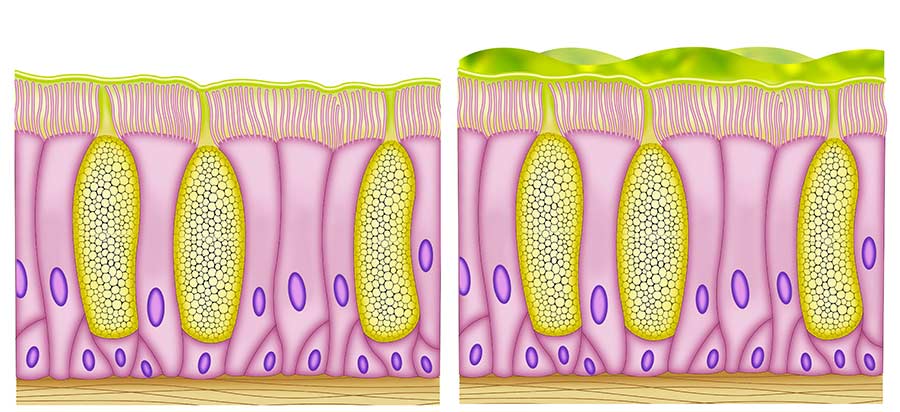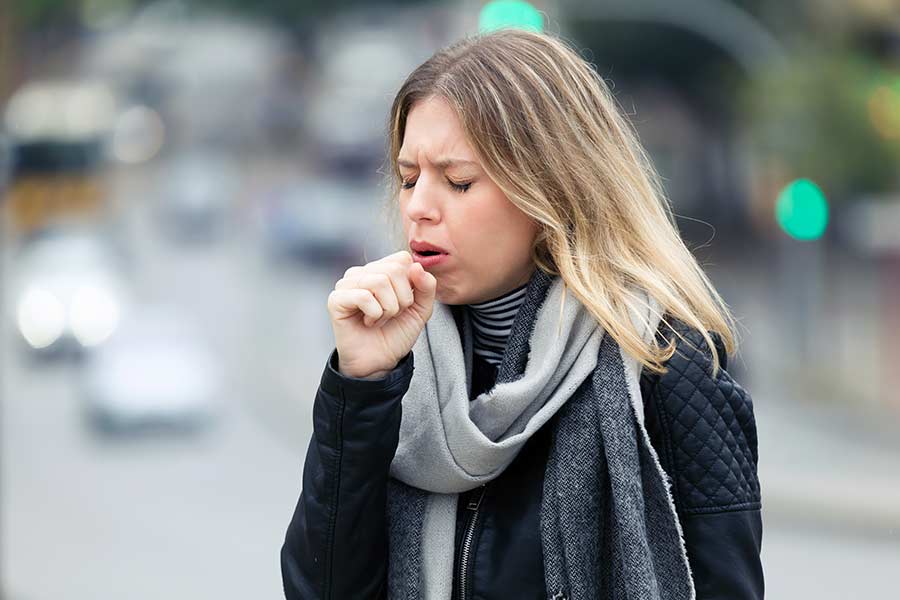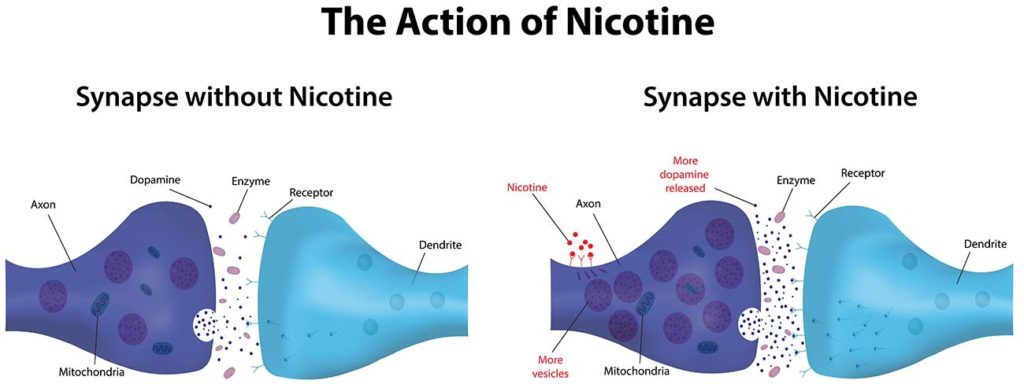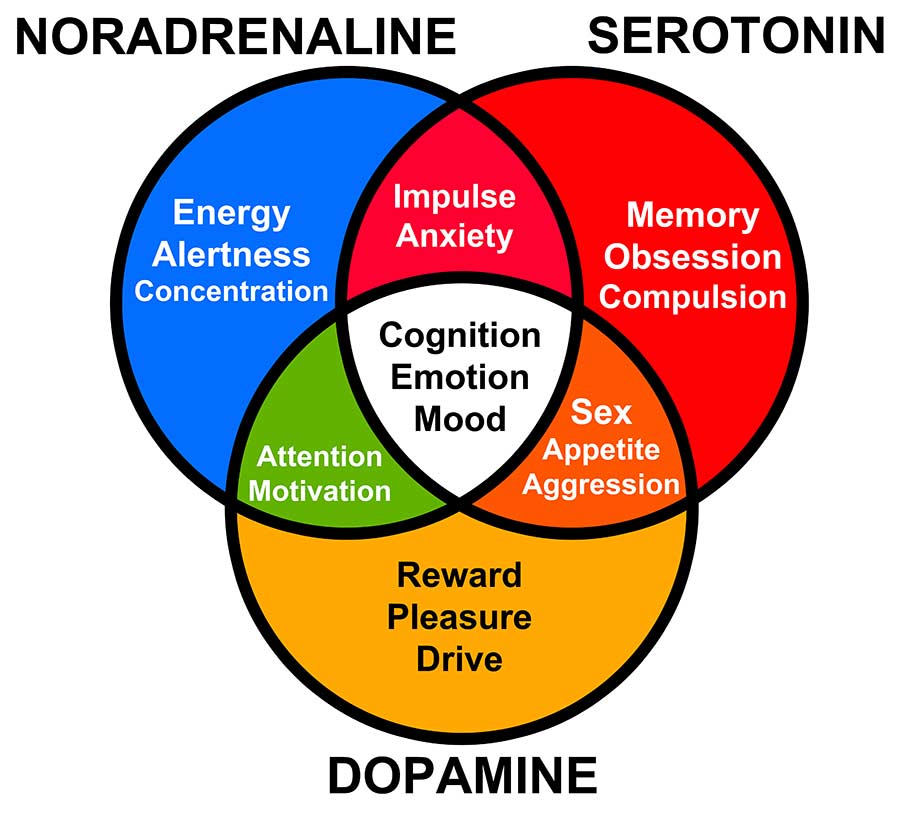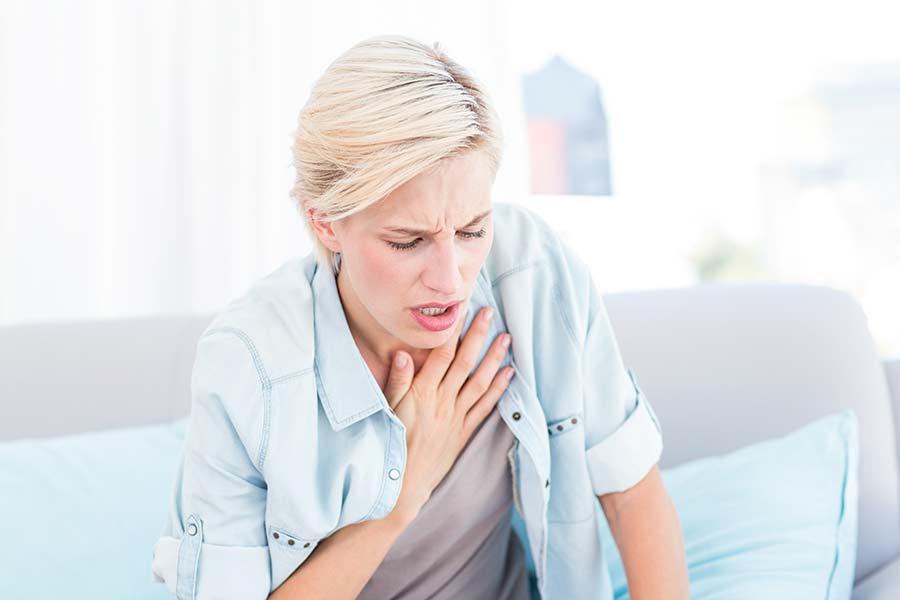Some people report feelings of depression after quitting smoking. Mood changes and irritability are common in the first few weeks after you quit smoking. And so are sadness and depression.
More severe depression can happen, too. 24% of smokers with a history of depression and 14% of smokers with no history of depression report mild to major depression after quitting smoking.
Most times, these low moods are temporary nicotine withdrawal symptoms and quitting smoking will eventually decrease depression.
And there are many things you can do to speed the process and begin feeling better.
So if you’re struggling with sadness or depression, or if you’re worried that you will after quitting smoking, keep reading to learn why this happens and how to cope.
(And if you’re concerned about someone else, there are things you can do to help.)
Remember, You’re not alone!
What Is Depression?
While experiencing sad feelings and low moods is common after quitting, this is not always depression and it’s not always because you stopped smoking.
Depression is a mood disorder. It affects how you feel and think, and how well you’re able to cope with life.
Some of the signs of depression are:
• feeling sad or empty
• feeling discouraged or hopeless
• losing interest in things you usually enjoy
• having difficulty concentrating or making decisions
• feeling restless or irritable
• losing your appetite or eating too much
• feeling tired or without energy
• having difficulty sleeping or, for some people, sleeping too much.
Depression or Sadness?
Feeling sad and being depressed are two different things.
Feeling sad is usually a response to something difficult, disappointing or hurtful. This lasts a day or it can be a
Feeling depressed isn’t a response to a specific event. It’s a general feeling of unhappiness–usually about everything in one’s life.
Depression is persistent, not a sadness that comes and goes. As a general rule, if a low mood lasts for more than three weeks, it’s probably depression.
Is quitting smoking to blame if you feel depressed?
Not always.
Having bad days and going through bad phases is normal.
We all have days or weeks when nothing seems to go right; smokers, ex-smokers and non-smokers alike.
The sadness may be in response to something else that’s happened in your life. But this time, you’re going through this challenge as a non-smoker.
If you feel down shortly after you quit, then it could be because you cut off nicotine and your brain adjusts back to normal health.
But if you feel bad months after you quit, then it probably doesn’t have to do with quitting smoking.

When you have bad days, and you probably will, you might think that quitting is to blame and that smoking is the solution.
Remember that smoking put you in this situation in the first place and that if you smoke, a bad day may turn to many bad days of guilt and struggle.
Instead, focus on your freedom, and know that at the end of a bad day, you won and persevered. And a smoke-free day is a good day after all.
Nicotine and Depression
When you inhale tobacco smoke, nicotine passes into your bloodstream and quickly reaches your brain.
Nicotine hijacks your brain, takes the place of acetylcholine, another neurochemical, and stimulates the release of neurotransmitters like dopamine.
Higher dopamine levels improve your mood and your feeling of wellbeing. In fact, it’s sometimes called the “feel-good hormone.”
Why Would Quitting Smoking Make You Depressed?
It has a lot to do with dopamine.
Dopamine is released when you do something pleasurable, like have a nice meal, and also when you expect to feel pleasure.
Dopamine is also the reason why you use cigarettes as a reward and as a way of managing emotions.
The problem is that, over time, your brain learns to release most of its dopamine when you smoke.
So when you stop smoking, the reward–the expected cigarette–doesn’t follow, and your dopamine level drops. So you momentarily feel unhappy or dissatisfied.
Think about it this way.
Nicotine is a stimulant. But after stimulation comes depression.
So you have to keep taking the stimulating drug to avoid the depressive effects.
This creates a vicious cycle of stimulation and depression and the only way to break it is to stop taking the stimulating drug; the nicotine.
Another Reason Why You May Feel Depression After Quitting Smoking
Some other chemicals in the brain are involved, too. One of them is MAO-A. (That stands for monoamine oxidase A.)
MAO-A levels are higher than usual in people with depression. And they’re very high in the first few days after quitting smoking.
Why does that matter?
Well, high levels of MAO-A reduce the amount of serotonin in your brain. And low levels of serotonin are linked to depression.
What happens when you stop taking nicotine?
Regular smoking changes your brain chemistry. And when you quit, your brain chemistry changes again.
Once you stop taking nicotine, your brain will eventually bounce back and stop waiting for nicotine to release dopamine.
Instead, it will release the feel-good chemical when you do something that gives you real pleasure.

During that transition period is when you’re most likely to feel sad or depressed.
You probably smoked when you did things you enjoyed. Maybe you had a cigarette after a meal, after sex or while talking with friends.
You can learn to enjoy all of these things without smoking, but it may take some time.
Also, when you stop using cigarettes as a way to manage emotions–whether positive or negative–you may feel your emotions more strongly. You’re not suppressing them, so they may feel more intense.
This is temporary–you’ll adjust.
You’ll learn other ways of coping, feeling rewarded and managing emotions without cigarettes. And your feelings of sadness or depression will begin to subside.

It takes a while for your brain chemistry to go back to the way it was before you started smoking.
But if you stay away from nicotine, you’ll go back to normal levels in about a month.
Your brain won’t need that nicotine supply any longer.
How Long Does Quit Smoking Depression Last?
These feelings can last for up to 4 weeks after you are nicotine free, but it varies from one person to another.
If you’re a heavy smoker, you’ve developed extra nicotine receptors in your brain.
Nicotine binds to these receptors. And withdrawal symptoms develop when the receptors aren’t activated.
The number of nicotine receptors will go back to normal levels and you will start feeling better if you stay away from nicotine.
It usually takes about a month, but that can vary from one person to another.
It’s important to be consistent and remain nicotine-free. If you smoke, you’ll just prolong the quitting process.

Using nicotine patches or chewing nicotine gum or vaping will prolong the process, too.
Nicotine is addictive, whether it’s in a cigarette or in some other form. It will take longer to reduce the number of nicotine receptors in your brain if they’re still being exposed to nicotine.
If you stay away from nicotine completely, you’ll probably find that your mood gradually improves.
There’ll be times when you find yourself feeling more energetic and more excited about something you’ve planned.
Pay attention to the good feelings and increased energy you feel at times. You can expect more of these positive changes.
Keep your expectations realistic, though.
It’s not unusual for feelings of sadness to return at times, and for your moods to vary. That’s normal for everyone.
But with time, any sadness or depression that was linked to quitting smoking should end.
Ex-smokers who have gone for a year or more without a cigarette report being happier than smokers.
And they report being much happier than they were when they were smoking.
So don’t let a short period of adjustment keep you from your goal of becoming a non-smoker.
What If You Were Already Depressed Before You Quit Smoking?
A lot of smokers suffer from depression. In fact, smokers are more likely to experience depression than non-smokers. Scientists aren’t sure why.
And smokers with depression or anxiety disorders often smoke very heavily. People experiencing depression or anxiety are more likely to reach for a cigarette whenever they feel uncomfortable.
You might be pleasantly surprised to find that quitting smoking makes you feel less depressed. For some people, quitting smoking is as effective as taking antidepressants!
Several studies have reported a decrease in depression and an improvement in “psychological quality of life” in people who quit smoking. And this is true whether or not they suffered from depression or anxiety.
So don’t worry that quitting smoking will make you even more depressed in the long run. That’s not likely to happen.
How to Cope with Sadness and Depression after Quitting Smoking
There are a number of things you can do to help yourself feel better.
- One of the most important is to go easy on yourself. This isn’t the time to make a major life decision or start a big project. Give your body and your mind time to adjust to being free of nicotine first.
- Talking to someone can help.

- Take care of yourself. Make a point of eating regular meals. Focus on healthy foods, like lean meats, fresh fruits, and vegetables.
- Avoid sugar. You may find that you crave sweets and carbohydrates, but they’re not the best choice. Scientists are finding links between depression and consumption of sugar and refined carbohydrates–the kind in white bread and pasta. They may make you feel good at first, but your mood is likely to crash later as your blood sugar drops.
- Reduce alcohol. Don’t rely on alcohol to improve your mood. Drinking may help you feel better for a little while, but it makes depression worse in the long run. And having a drink can reduce your motivation to quit smoking.
- Pay attention to your grooming. Take a shower, even when it seems like a lot of work.
- Try to stay active. Exercise releases endorphins into the bloodstream. Endorphins create a sense of calm and relaxation and improve our mood. The feeling they create is so good that it’s often called a “runner’s high.”
So go for a run, take a walk, ride your bike, go to the gym. Do what you can.
You could also invite someone to exercise with you. Spending time with other people can help you feel more connected and motivated.
- Socialize. Call a friend or family member. Meet someone for coffee or a meal. Make plans to go to a concert or see a movie.
- Be sure to get outside and get some sunlight. If you can’t get outside, open the blinds and let more light into your home. Sunlight helps boost serotonin levels. It’s a neurotransmitter that influences mood. It isn’t clear why, but it’s usually lower in people with depression.
- Walk your dog. If you don’t have one, walk someone else’s dog. Animal shelters are usually glad to have volunteers come in and take a dog out for a walk. Even a brief time spent with an animal can ease depression. And walking a dog can help you connect with other people in a relaxed way.
- Do something that you usually enjoy, even if it doesn’t appeal to you right now. It’s hard to take action and get moving when you’re depressed, but you’ll almost always feel better once you do.
- It’s a good idea to make plans for your day. Be sure to include something enjoyable in your plans, to give yourself something to look forward to.

- Keeping a gratitude journal can also help. It’s a list of things you’re thankful for. They can be as simple as seeing a beautiful sunset, or as basic as having a safe place to live and food to eat. And of course, friends and family can go on your gratitude list, too.
- This too shall pass. Remember that your low feelings won’t last forever. You’ll adjust–physically and mentally–to being nicotine free. And the odds are that you’ll be much happier once you do.
You’ll be healthier, too. And more energetic. So there’s a lot to look forward to.
- You’re working towards the goal of being smoke-free. You may want to try working towards another goal, too. It can be in any area of your life–financial, health, career.
Any steps you take towards reaching your goal can focus your energy on something productive, bolster your self-esteem and help improve your mood.
Seeking Outside Help
Sometimes depression is so severe that self-help measures like exercise and socializing with others aren’t enough.
If that’s the case for you, seek professional help. It’s especially important if you find yourself thinking about suicide or otherwise harming yourself.
Cognitive behavioral therapy (CBT) can be very helpful, and so can other forms of psychotherapy. You talk with a counselor about your thoughts and feelings. Together, you work to try to understand them better. And your counselor helps you learn new ways of coping.
Just remember: help is available. You don’t need to cope with depression alone.

